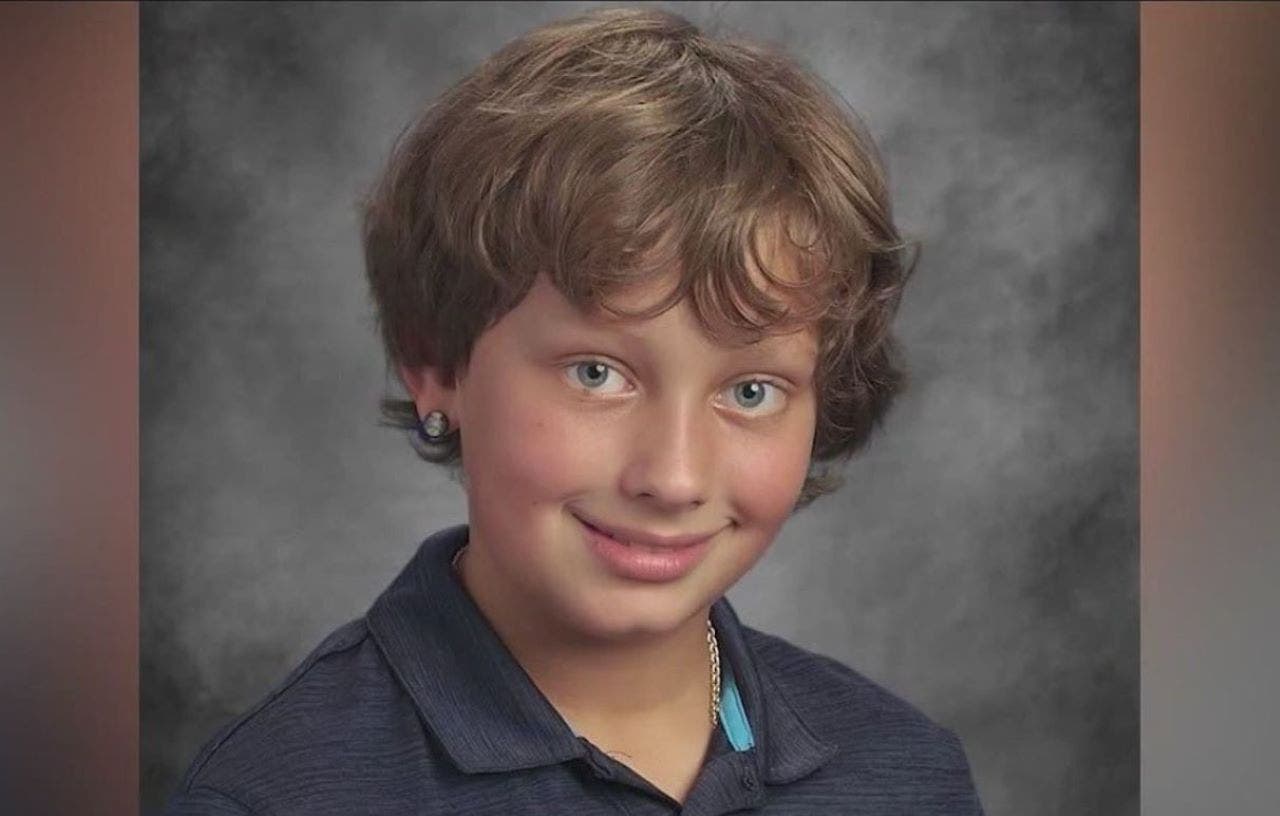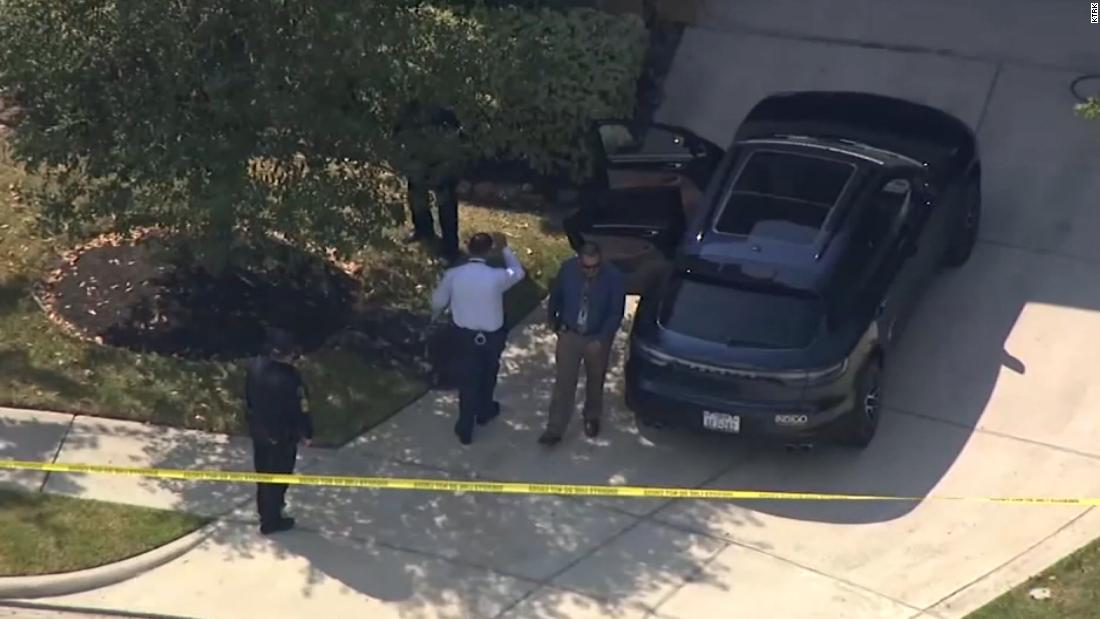This is one of those heart-wrenching stories that hits home for so many parents out there. A New Jersey dad is now facing charges after his 4-month-old son tragically passed away after being left alone in a car for an extended period. It’s a devastating reminder of just how quickly things can go wrong, and it’s something we all need to talk about. This isn’t just about blame—it’s about understanding the dangers and learning from this tragedy.
Let’s be real here. Accidents happen, and sometimes they’re preventable. But when it comes to leaving kids in cars, there’s no room for error. The consequences are too severe, and the risks are way too high. This story is not only heartbreaking but also serves as a wake-up call for everyone who cares about child safety.
We’re diving deep into what happened, why it matters, and how we can all do better moving forward. Because at the end of the day, every child deserves to be safe, and every parent deserves to know exactly how to keep them that way.
Read also:Simon Cowell Accident 2025 The Inside Story You Need To Know
Understanding the Tragedy: What Happened in New Jersey?
The incident took place in New Jersey, where authorities were called to investigate after a 4-month-old baby was found unresponsive inside a vehicle. According to reports, the father left the child alone in the car for what investigators described as an "extended period." By the time emergency services arrived, it was too late—the baby had already passed away.
Now, you might be wondering how something like this could happen. Was it negligence? A terrible mistake? Or something else entirely? The truth is, we may never fully understand the circumstances leading up to this tragedy unless more details come to light. What we do know is that this case highlights the dangers of leaving children unattended in vehicles, no matter the circumstances.
Why Leaving Kids in Cars Is So Dangerous
Leaving a child in a car, even for just a few minutes, can have catastrophic consequences. Here’s why:
- Temperature Fluctuations: Cars heat up incredibly fast, especially on sunny days. Even if it doesn’t feel particularly hot outside, the temperature inside a car can rise by 20 degrees Fahrenheit in just 10 minutes. That’s enough to cause heatstroke or worse.
- Risk of Suffocation: If a car isn’t properly ventilated, carbon dioxide levels can build up quickly, making it hard for a child to breathe.
- Physical Harm: Kids left in cars can also injure themselves by playing with locks, windows, or other controls. In some cases, they’ve even managed to get themselves stuck in dangerous positions.
These risks aren’t hypothetical—they’re very real, and they happen more often than you’d think.
Legal Implications: What Charges Could the Father Face?
In situations like this, legal action is almost inevitable. Depending on the specifics of the case, the father could face charges ranging from neglect to involuntary manslaughter. Authorities will look closely at factors like how long the child was left in the car, the weather conditions at the time, and whether there were any previous incidents of neglect.
It’s important to note that the legal system exists to hold people accountable, but it’s not always about assigning blame. Sometimes, these cases are opportunities to educate others and prevent similar tragedies in the future.
Read also:Zendaya Height And Weight The Real Story Behind Her Measurements
What Does the Law Say About Child Safety in Vehicles?
Most states have laws specifically addressing the issue of leaving children unattended in vehicles. In New Jersey, for example, it’s illegal to leave a child younger than 8 years old in a car without supervision. Violators can face fines, jail time, or both, depending on the severity of the offense.
But laws alone aren’t enough. Education and awareness play a crucial role in ensuring that parents and caregivers understand the risks involved.
Preventing Future Tragedies: Tips for Parents
So, how can we prevent something like this from happening again? Here are a few tips that every parent and caregiver should keep in mind:
- Never Leave a Child Alone in a Car: No matter how short the stop or how mild the weather, it’s simply not worth the risk.
- Set Reminders: Use your phone’s alarm or place a reminder item (like a stuffed animal) in the front seat to ensure you don’t forget your child.
- Establish a Routine: Make it a habit to check the backseat every time you exit the vehicle.
- Talk to Caregivers: If you have a babysitter or daycare provider, make sure they’re aware of the dangers and have a plan in place to prevent accidents.
These small steps can make a big difference in keeping kids safe.
Data and Statistics: How Common Are These Incidents?
According to KidsandCars.org, an average of 38 children die each year in the U.S. due to heatstroke after being left in cars. That’s almost one child per week. And while the majority of these cases involve accidental oversight, the outcomes are always tragic.
Here’s a breakdown of some key statistics:
- More than 50% of cases involve parents or caregivers who unintentionally leave their child in the car.
- Another 30% involve children gaining access to unlocked vehicles and becoming trapped inside.
- The remaining cases involve intentional abandonment, often due to negligence or misunderstanding the risks.
These numbers should serve as a wake-up call for anyone who thinks this kind of thing “won’t happen to me.”
Breaking Down the Numbers: State by State
Some states see higher rates of child vehicular heatstroke deaths than others. Texas and Florida, for instance, consistently rank among the top states for these types of incidents. This could be due to warmer climates, larger populations, or a combination of factors.
But regardless of where you live, the risks are real. It’s up to all of us to take responsibility and ensure that our children are never left in harm’s way.
The Emotional Impact on Families
When a child dies after being left in a car, the emotional toll on the family is unimaginable. Parents often experience guilt, shame, and overwhelming grief, even if the incident was truly accidental. In many cases, the pain never fully goes away.
It’s important to remember that pointing fingers doesn’t bring anyone back. Instead, we need to focus on supporting families who are dealing with these kinds of tragedies and working together to prevent future incidents.
How Can We Support Affected Families?
If someone you know has experienced a loss like this, there are ways you can help:
- Offer Practical Help: Run errands, cook meals, or provide transportation for the family during this difficult time.
- Listen Without Judgment: Sometimes, all someone needs is a safe space to express their feelings without fear of criticism.
- Encourage Professional Help: Grief counseling can be incredibly beneficial for families dealing with loss.
Small acts of kindness can make a huge difference in someone’s life.
Community Efforts to Raise Awareness
Communities across the country are stepping up to raise awareness about the dangers of leaving children in cars. From public service announcements to educational workshops, there’s a growing movement to educate parents and caregivers about the risks involved.
One organization leading the charge is KidsandCars.org, which advocates for stronger safety measures and increased awareness. Their efforts have already made a significant impact, but there’s still much work to be done.
How You Can Get Involved
Want to help spread the word? Here are a few ideas:
- Share Information: Post about child safety on social media and encourage others to do the same.
- Host Workshops: Organize events in your community to educate parents and caregivers about the dangers of leaving kids in cars.
- Support Advocacy Groups: Donate to organizations like KidsandCars.org or volunteer your time to help with their initiatives.
Together, we can create a safer environment for all children.
Conclusion: Learning from Tragedy
In conclusion, the heartbreaking case of the New Jersey father serves as a stark reminder of the dangers of leaving children unattended in vehicles. While the legal and emotional consequences for the family involved are immense, our focus should be on preventing similar tragedies in the future.
By educating ourselves and others about the risks, establishing safety routines, and supporting organizations dedicated to child safety, we can make a real difference. So, let’s take action today and ensure that no parent ever has to experience the pain of losing a child in this way.
If you found this article helpful, please share it with your friends and family. Together, we can create a safer world for everyone.
Table of Contents
- N.J. Dad Charged After 4-Month-Old Son Dies After Being Left Alone in a Car for an 'Extended Period'
- Understanding the Tragedy: What Happened in New Jersey?
- Why Leaving Kids in Cars Is So Dangerous
- Legal Implications: What Charges Could the Father Face?
- Preventing Future Tragedies: Tips for Parents
- Data and Statistics: How Common Are These Incidents?
- The Emotional Impact on Families
- Community Efforts to Raise Awareness
- Conclusion: Learning from Tragedy



